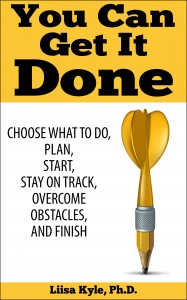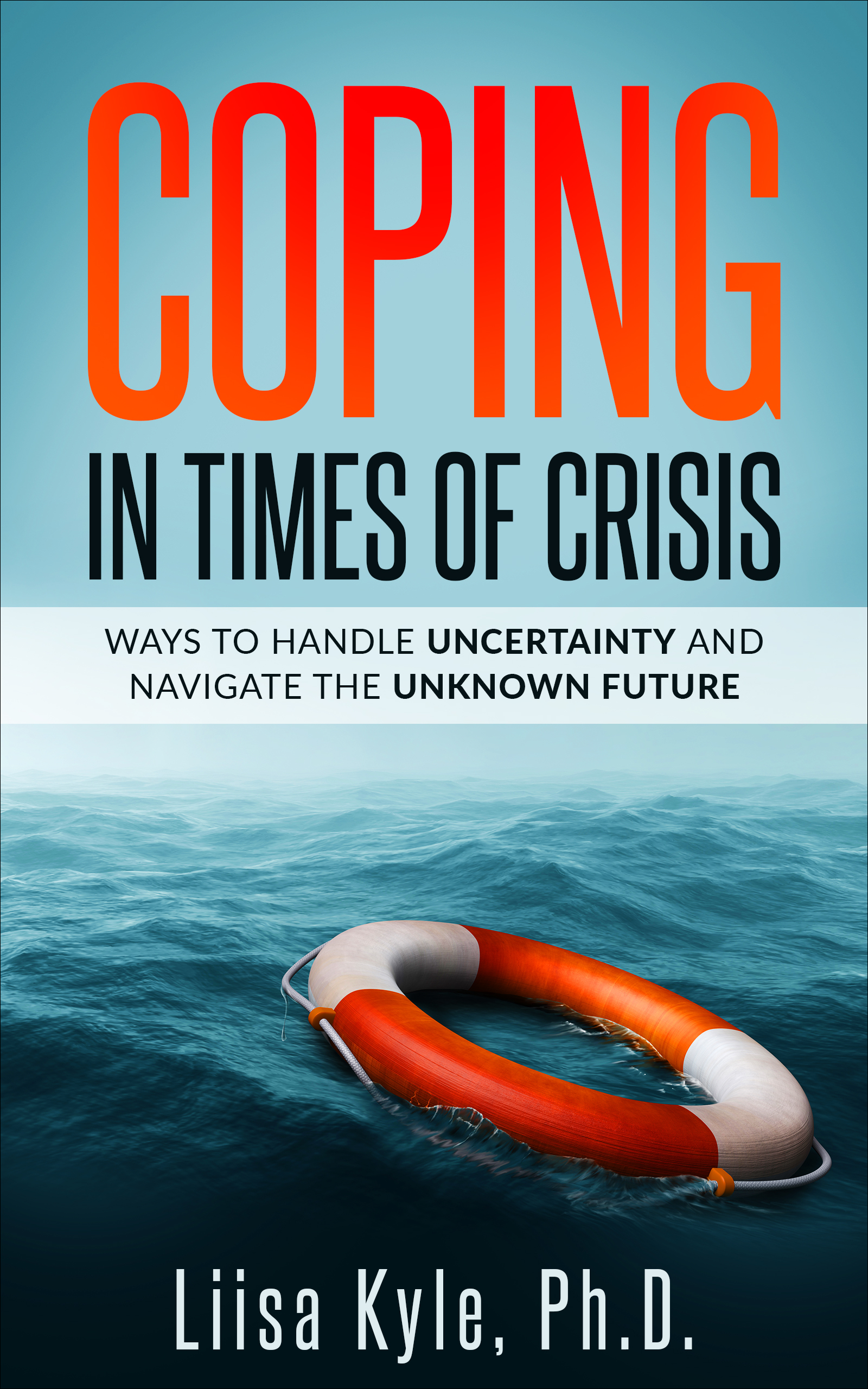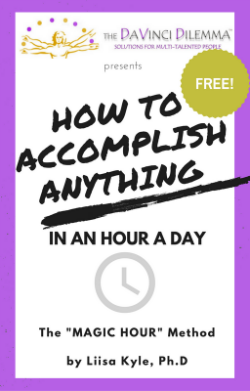
By Andre666 at English Wikipedia [Public domain], via Wikimedia Commons
One approach that many of my coaching clients find helpful is this: First things first.
This deceptively simple concept works because:
1. It focuses your priorities on what’s important.
When you have a clear understanding of what means the most to you, you can better direct your talents, time and energy. The idea here is to ask yourself, “What’s most important?” What would be the most fulfilling or meaningful? Growing your business? Improving your health? Deepening your relationships? Making money? Establishing yourself? Self-expression? Your legacy?
It’s very easy to get caught up in what’s urgent. Or to choose less important tasks because they are less intimidating or because they’ll fit into shorter time periods. It’s much easier to reply to an email than to sit down and actually flesh out ideas for a new product . . . but to the extent you can remind yourself of your true priorities, you can make better use of your time and efforts.
2. It focuses your actions on what you can do next.
Yes you have four dozen items on your ‘To Do lists’. Now, of those, which makes sense to do at this point in time? Among the available options, what would have the biggest impact, were you to do it next?
Right now, is it more important for you check social media for the third time today . . . or would it make more sense to use this five minutes to call that prospective client?
3. It encourages you to take advantage of how your brain works.
Research has shown that our brains work best right after we awaken. Our minds are refreshed, replenished and rebooted. The assaults of the day’s demands and interruptions have not yet commenced. As a special bonus: there’s a carryover from our dream-state that makes us more innovative and more creative in whatever we do first thing in the morning.
To the extent you can devote your very first activity of the day to whatever is most important to you, you can make significant strides more easily. (This is another reason to postpone checking your email, phone messages, social media or news feeds until later in the day: avoid those sorts of distractions until AFTER you’ve spent time doing something important to you).
As an added bonus, whatever time you can devote to your initial activity of the day — be it twenty minutes, an hour, or more — you’ve already accomplished something. For example, if you, say, write five pages first thing, then no matter what happens for the rest of the day, you’ve written five pages! Five pages a day adds up fast. Five pages a day, five days a week means a script in a month or a novel in two.
If you “don’t have time” given the practical constraints of your living situation, ask yourself: what would it mean if you could make efficient, regular progress on your top priority. Would that be worth doing some creative problem solving to figure out how to get yourself twenty minutes first thing in the morning?
If you believe you’re not a “morning person” so there’s no point trying — consider that you may missing out on the most productive time of your day. Your biology is such that your brain works best after its had some rejuvenating shuteye.
Merrill Markoe is an accomplished writer of television and nine books. Recently, when she was recovering from surgery, she was pretty much forced to write first thing in the morning — a practice she’d avoided throughout her professional life. She was astonished at the difference it made. Gone was the stress, self-loathing angsty procrastination that had plagued her days. It was replaced by stress-free productivity and fostered a joy through writing she hadn’t experienced before. She chronicled her discovery in this excellent, entertaining New York Times article.
4. It requires that you focus on one thing at a time.
The other implicit element of “first things first” is that you give attention to only your top priority at a given time. As research as proven, focus is your friend. To the extent you can channel your time, energy and attention on only one thing at a given moment, the more you will get done, faster, with higher quality and less stress.
So the next time you find yourself overwhelmed with “To Do’s” or uncertain about your priorities, remind yourself: First things first. Do whatever is most important. Do it first thing every morning. Do one thing at a time.
***
 Want more tips and techniques on getting things done? Check out my book YOU CAN GET IT DONE: Choose What to do, Plan, Start, Stay on Track, Overcome Obstacles, and Finish
Want more tips and techniques on getting things done? Check out my book YOU CAN GET IT DONE: Choose What to do, Plan, Start, Stay on Track, Overcome Obstacles, and Finish
Available here in hardcover, paperback, and eBook formats: http://bit.ly/YouCanGetItDone
***
Want to re-publish this article? Go for it – just include the author’s name, a link to this post and the following text blurb:
Are you struggling with too many talents, skills, ideas? You may have The DaVinci Dilemma™! Find tools, fun quizzes, coaching, inspiration and solutions for multi-talented people at http://www.davincidilemma.com/ .




I could definitely relate when you said that we are at our most energetic and focused first thing in the morning — I’ve definitely found that to be true. It’s also true for me that I tend to feel kind of blissed-out and invincible in the morning as well, and it’s sometimes difficult for me to tear myself away from simply enjoying that feeling and get to work. Well, I can probably appreciate that feeling for a bit without sacrificing the rest of the day, I suppose. 🙂